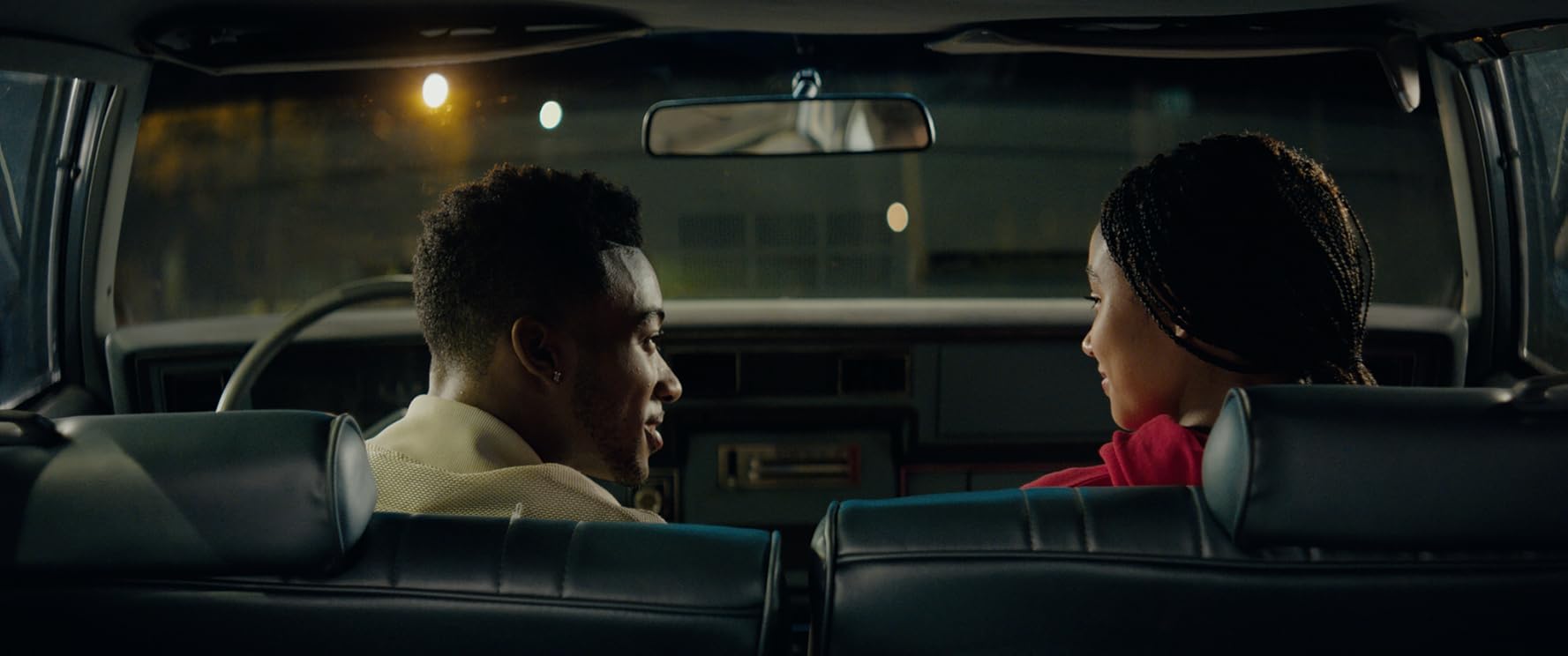A Powerfully Affecting Examination of an Injustice at the Heart of America’s Justice System
DIRECTED BY GEORGE TILLMAN, JR. / 2018

A lot of modern YA literature seems to consist of young people rising up against the totalitarian order of a dystopian society that sees said young people as disposable. The Hate U Give is not unique in that regard. However, the dystopia it rails against isn’t some fictional post-apocalyptic nightmare, but a nightmare that is all too current and real for millions of people living in the United States today.
Based on the award-winning novel by Angie Thomas, The Hate U Give is a powerful and moving melodrama anchored by a stunning performance by its young lead, Amandla Stenberg (The Darkest Minds). The movie doesn’t see the issues it grapples with in a nuanced or complex way- and that’s perfectly appropriate. This is a movie based on a young adult novel, aimed squarely at that same audience. It is telling them that there is injustice in this world- and that they themselves have the power to stand against that. If real and meaningful progress is to happen, it will come from the youth realizing that no one is coming to save them. “We are the ones we have been waiting for,” President Obama once said, and that’s never been more true.
The Hate U Give is a powerful and moving melodrama
Starr (Stenberg) lives with her family in a poor, predominantly African-American neighborhood. Her father, Maverick ‘Mav’ Carter (Russell Hornsby) owns and operates a local grocery, which provides for the family and allows them to send Starr and her two brothers to a private Catholic school. Her mother, Lisa (Regina Carter), hopes this will shield them from the violence, drugs and gang influence all too often found in poor communities and give the kids a shot at a better life for themselves.

For many young American Blacks, however, violence and tragedy have a way of finding them regardless of any precautions. At a party one evening, Starr reconnects with an old childhood friend, Khalil (Algee Smith). Khalil gives her a ride home, but the two are pulled over by the police. The stop goes wrong, and the police shoot Khalil thinking he was armed- he wasn’t, he was just holding a hairbrush. This becomes yet another instance of a young, unarmed black man gunned down by a jumpy, white police officer with a nervous trigger finger.
The compounded injustice of these many, many instances of police shootings weighs heavily on Starr. As a witness, she is in a position to give testimony to what happened to her friend on that fateful night, but there is pressure on her, from every side, to keep quiet.
This film doesn’t offer any easy answers
The major conflict of the story is between Starr’s desires to fit in at school, and her desire to act in the face of the death of her friend. Her anger and grief compel her to do something, anything. Yet, if she stands up and speaks out, she worries how that will color the perceptions her peers at school have of her. She has worked hard to keep the two halves of her lives separate (her rich, white boyfriend has never been to her home, much less the neighborhood).
On the flip side, it becomes known that Khalil was running drugs for a local gang, led by King (Anthony Mackie, maybe best known as the Falcon from the Captain America films). It’s a detail that has no bearing on what happened the night Khalil got shot- it’s just a talking point used to suggest that Khalil maybe wasn’t so innocent (witness similar accusations about drug use being leveraged recently against Botham Jean, the man who was killed in his own home by a confused police officer). King would like to keep his name out of any official deposition, and if that means he has to intimidate Starr into not testifying against her friend’s killer- than so be it.

So Starr has to make her choice. Does she keep her head down and keep on going as if nothing is wrong, or does she stand up for her friend. And if she does stand up, will all the trouble that brings mean anything at the end? This film doesn’t offer any easy answers even as it ultimately conveys hope that positive change can happen if people are willing to fight for what they believe is right.
Director Tillman distinguishes between Starr’s two worlds through color grading: the scenes in the neighborhood are warm and saturated, while the ones at school are cool and gray. Again, this isn’t a subtle effect, but it visually makes an instant contrast between them.
All of the performances in the film are standouts. Okay, I know they can’t all be standouts- that’s not what standing out means, right? But seriously, they’re all standouts! Amandla Stenberg, as the lead, has the heaviest load to carry and she does so with raw emotional power. Also noteworthy is Hornsby as her father. The scene of him, at the film’s outset, giving his children ‘the talk’ (instructions on how to behave as a black person when confronted by the police) establishes the heartbreaking tone of the movie from the outset (and a reality that, again, too many Americans have to live with). Common plays Starr’s uncle, a police officer himself, who has a scene where he tries to convey the police’s point of view to his niece.
A final note, I didn’t know this was a thing, but according to the movie it is. So, with all due respect to African-American culture, y’all are wrong: Macaroni and Cheese is a damned fine main dish!

